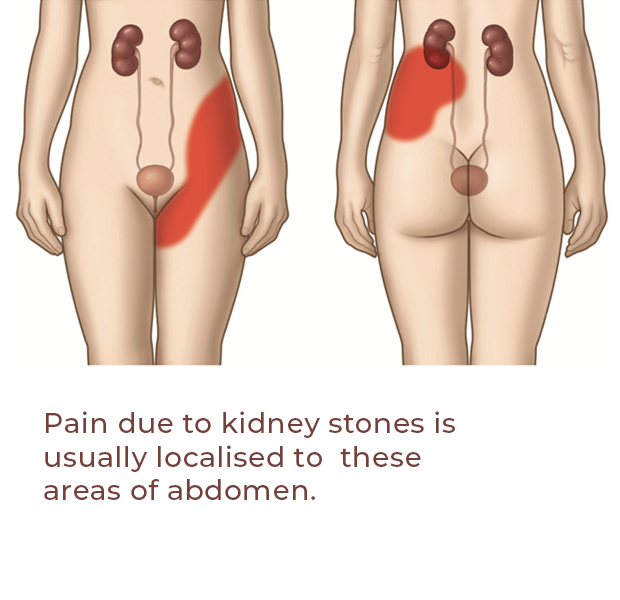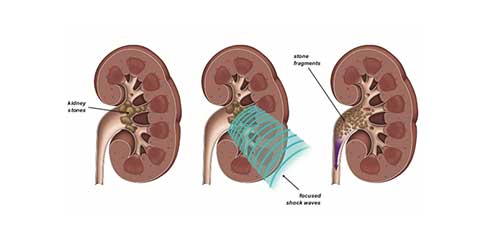
Kidney stones (renal lithiasis) are small, hard deposits that form inside your kidneys. The stones are made of mineral and acid salts. Kidney stones have many causes and can affect any part of your urinary tract — from your kidneys to your bladder. Often, stones form when the urine becomes concentrated, allowing minerals to crystallize and stick together.
Passing kidney stones can be quite painful, but the stones usually cause no permanent damage. Depending on your situation, you may need nothing more than to take pain medication and drink lots of water to pass a kidney stone. In other instances, surgery may be needed. Your doctor may recommend preventive treatment to reduce your risk of recurrent kidney stones if you’re at increased risk of developing them again.
Symptoms
A kidney stone may not cause symptoms until it moves around within your kidney or passes into your ureter — the tube connecting the kidney and bladder. At that point, these signs and symptoms may occur:
1. Severe pain in the side and back, below the ribs
2. Pain that spreads to the lower abdomen and groin
3. Pain that comes in waves and fluctuates in intensity
4. Pain on urination
5. Pink, red or brown urine
6. Cloudy or foul-smelling urine
7. Nausea and vomiting
8. Persistent urge to urinate
9. Urinating more often than usual
10. Fever and chills if an infection is present











